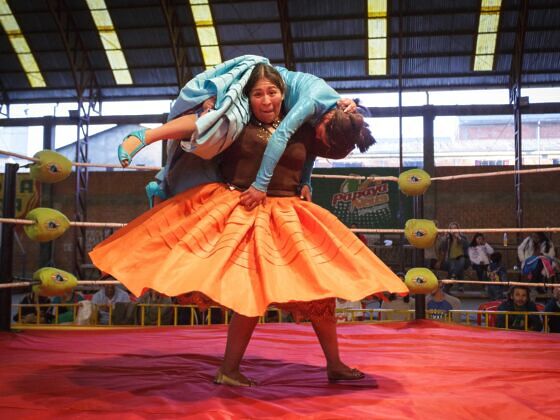In the opening sequence of Betty M. Park’s documentary, “Mamachas del Ring,” a man makes the mistake of calling Carmen Rosa a whore.
It’s not a mistake he’ll be likely to repeat with her or any other woman: Carmen Rosa gives him a thorough ass whipping… and a tongue lashing, to boot. When she’s done with him, the man is prostrate at her feet, bleeding, crawling to find a handhold to pull himself off the ground. “You didn’t have to make his whole face bloody,” says her friend, who adds admiringly, “Daring, daring.”
